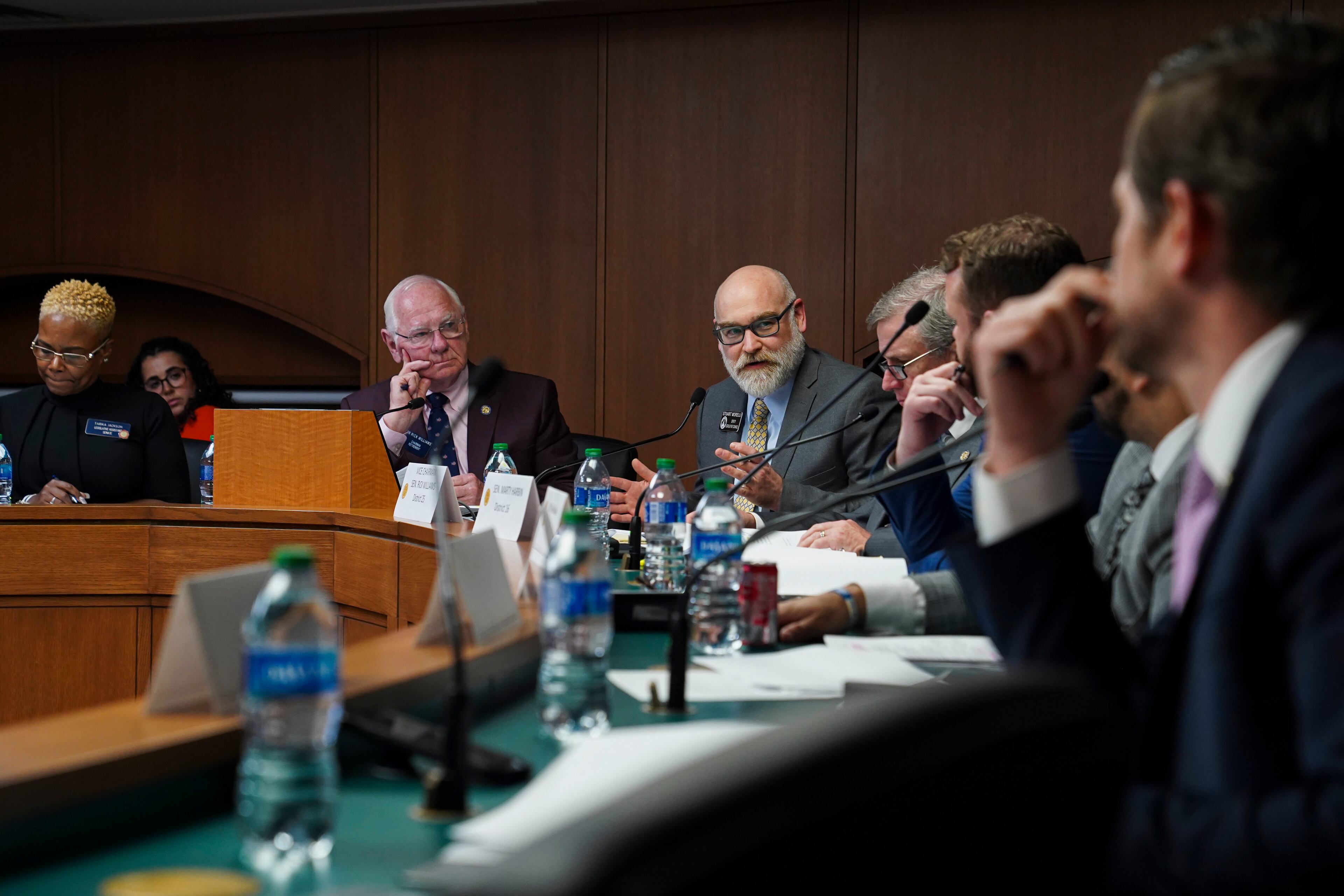Activist efforts to disqualify Georgia voters may lead to changes

Rampant attempts to challenge voters’ eligibility, a cause taken up by Republican activists using Georgia’s elections law, could soon be overhauled by lawmakers.
Voting rights advocates are seeking safeguards to protect against disenfranchisement of legitimate voters, while supporters of the system want even greater ability to disqualify individuals who they suspect might have moved away based on their mailing addresses.
Since Georgia’s 2021 voting law allowed anyone to challenge the eligibility of an unlimited number of other voters, over 92,000 registrations were contested last year, according to an accounting by the voting organization Fair Fight Action. County election boards upheld about 5,800 of the challenges.
In several cases, eligibility challenges targeted authentic Georgia voters who hadn’t permanently moved away: college students, military contractors temporarily working in a different state and the homeless. Some valid voters faced challenges because their names were similar to other voters who had moved.
“The right to vote is sacred, and if we’re going to be serious about it, we should not be willing to make mistakes when it comes to removing somebody from the voter rolls,” said Vasu Abhiraman, an attorney for the American Civil Liberties Union of Georgia.
Elections officials are asking the General Assembly for changes after government workers spent long hours last year evaluating whether voter challenges were justified.
In Gwinnett County, workers reviewed a list of 22,000 allegedly invalid voter registrations before the local election board ultimately dismissed all the voter challenges, finding there wasn’t probable cause to move forward because they were primarily based on mailing address records rather than more specific information that a voter had moved.
A bill that recently passed a state Senate committee would have empowered voter challengers by allowing them to rely entirely on change-of-address records from the U.S. Postal Service, which isn’t always a reliable source of information to determine whether someone has permanently moved.
The legislation would have also provided some relief to election workers by postponing action against those voters within 45 days of an election.
“The main thing that we care about right now is taking the work off of them, so having a window of time in which you cannot do those challenges is probably the most important thing to do,” said Gabriel Sterling, chief operating officer for the Georgia secretary of state’s office.

State Sen. Max Burns, the Republican sponsor of Senate Bill 221, said in a recent hearing that voters shouldn’t be disqualified based on temporary address changes, and the legislation includes language exempting students and members of the military. But the bill doesn’t say how election workers could differentiate between people who have moved temporarily and permanently unless challenged voters come forward.
“This is simply a clarification of what constitutes residency and what would be acceptable information for a challenge,” Burns said.
The bill didn’t receive a vote in the full Senate before a deadline last week, but it could be revived as part of different legislation.
Even before Georgia’s voting law that passed two years ago, the Texas-based organization True the Vote challenged 364,000 voters in late 2020 and early 2021 before the state’s U.S. Senate runoffs. County election officials threw out almost all the challenges.
Abhiraman said Georgia legislators should consider several additional ways to protect voters and election workers from frivolous challenges:
- Require more proof that a voter has moved beyond change-of-address information, which can be an inadequate method of determining residency. For example, evidence that someone has voted in a different state could show they’re no longer eligible in Georgia.
- Prohibit consideration of voter eligibility challenges several weeks before an election.
- Mandate that county election boards find evidence “beyond a reasonable doubt” before upholding a challenge.
- Prevent disqualifications based on challenges against long lists of voters at once. A federal law, the National Voter Registration Act, prohibits systematic removal of names of ineligible voters within 90 days of a primary or general election.
The Brennan Center for Justice, a voting advocacy organization, has also asked state election officials to create policies that would help prevent unwarranted voter challenges.
Voter challenges are a way to cancel registrations outside the regular process outlined in state and federal laws.
Normally, Georgia election officials cancel voter registrations only after mailing notification letters and after a period of inactivity that covers at least two consecutive general elections.
Election officials have canceled 922,000 outdated voter registrations since 2017, and there are now 7.9 million registered voters in Georgia.


